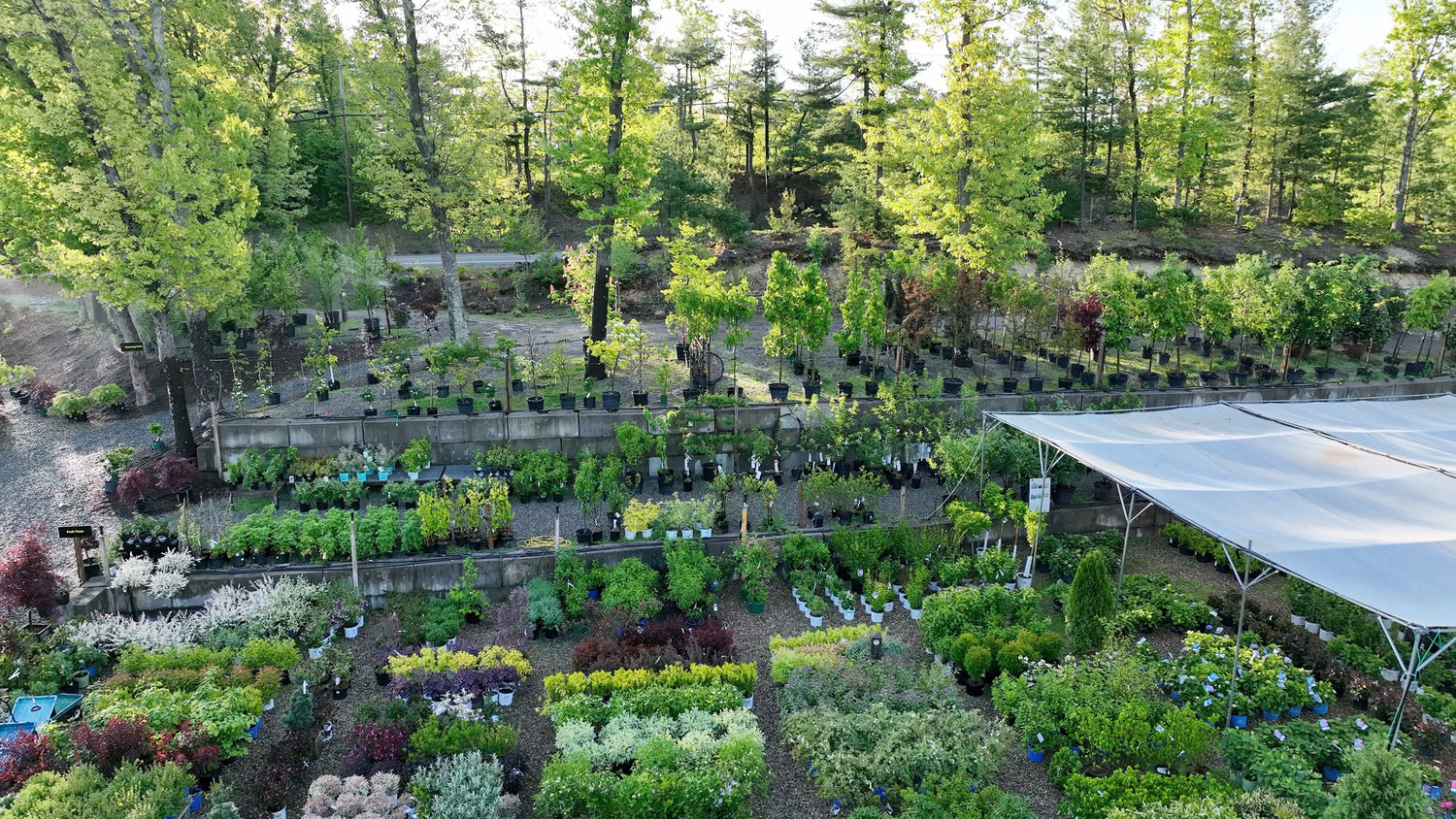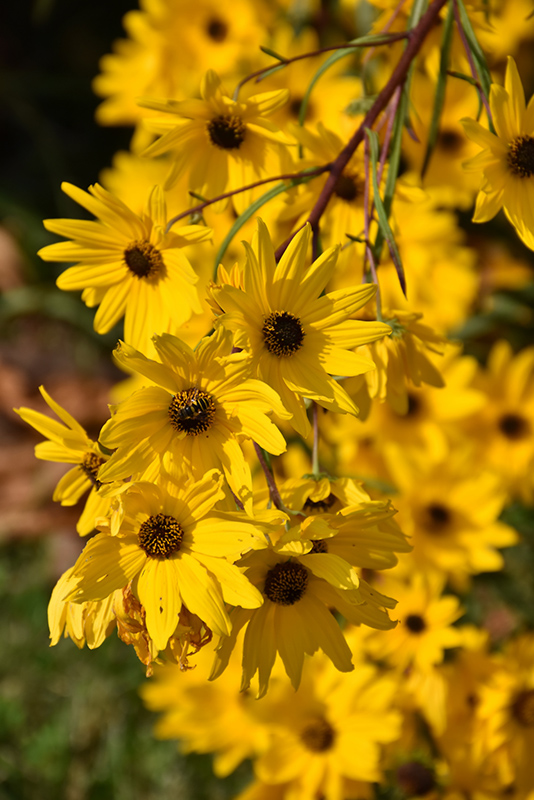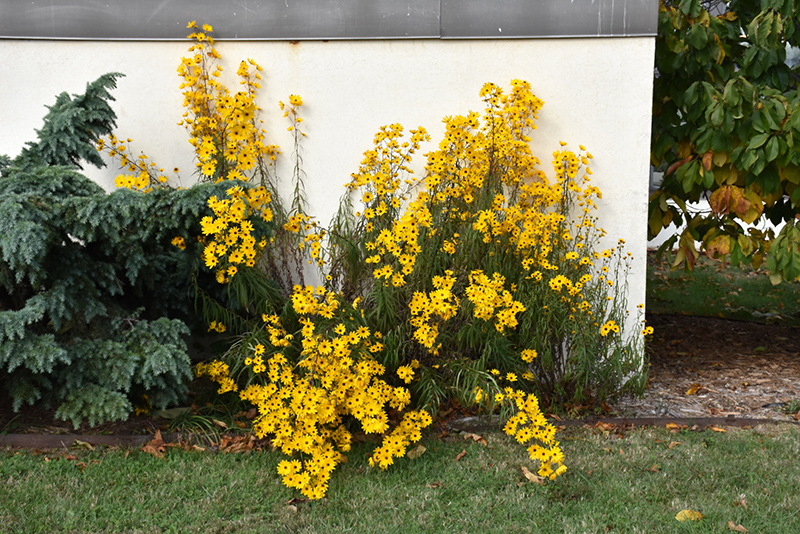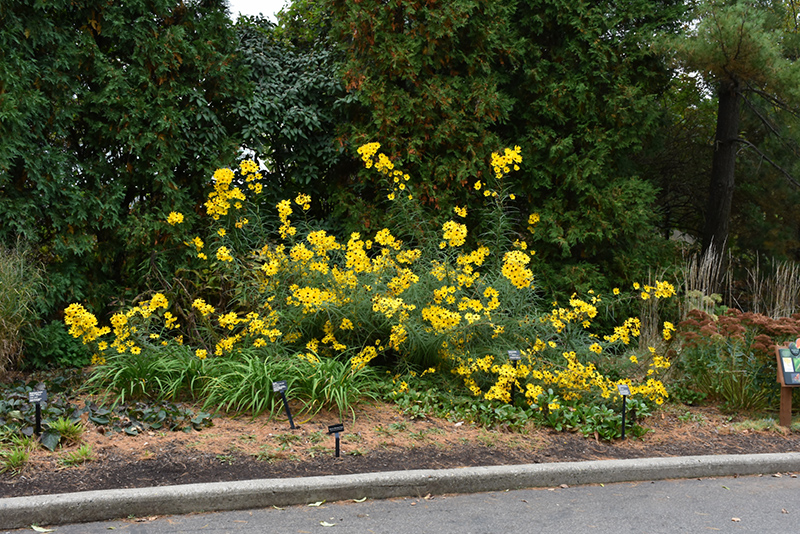Plant Guide
Narrow-leaved Sunflower
Helianthus angustifolius
Plant Height: 6 feet
Flower Height: 8 feet
Spread: 8 feet
Sunlight:
![]()
![]()
Hardiness Zone: 5a
Other Names: Narrow Leaf Sunflower, Swamp Sunflower
Description:
An upright, clumping native variety, producing plentiful, bright yellow daisy-like blooms, above fine, narrow foliage; heat and salt tolerant; excellent for sunny spaces; use in borders, naturalized areas, or along streams and ponds
Ornamental Features
Narrow-leaved Sunflower features showy clusters of yellow daisy flowers with dark brown eyes at the ends of the stems from late summer to mid fall. The flowers are excellent for cutting. Its attractive glossy narrow leaves remain dark green in color throughout the season. The brick red stems can be quite attractive.
Landscape Attributes
Narrow-leaved Sunflower is an herbaceous perennial with an upright spreading habit of growth. Its relatively fine texture sets it apart from other garden plants with less refined foliage.
This plant will require occasional maintenance and upkeep, and is best cut back to the ground in late winter before active growth resumes. It is a good choice for attracting birds, bees and butterflies to your yard, but is not particularly attractive to deer who tend to leave it alone in favor of tastier treats. Gardeners should be aware of the following characteristic(s) that may warrant special consideration;
- Disease
- Self-Seeding
Narrow-leaved Sunflower is recommended for the following landscape applications;
- Accent
- Mass Planting
- Hedges/Screening
- General Garden Use
- Naturalizing And Woodland Gardens
- Container Planting
- Bog Gardens
Planting & Growing
Narrow-leaved Sunflower will grow to be about 6 feet tall at maturity extending to 8 feet tall with the flowers, with a spread of 8 feet. The flower stalks can be weak and so it may require staking in exposed sites or excessively rich soils. It grows at a fast rate, and under ideal conditions can be expected to live for approximately 10 years. As an herbaceous perennial, this plant will usually die back to the crown each winter, and will regrow from the base each spring. Be careful not to disturb the crown in late winter when it may not be readily seen!
This plant does best in full sun to partial shade. It is quite adaptable, prefering to grow in average to wet conditions, and will even tolerate some standing water. It is not particular as to soil type, but has a definite preference for acidic soils, and is able to handle environmental salt. It is highly tolerant of urban pollution and will even thrive in inner city environments. This species is native to parts of North America..
Narrow-leaved Sunflower is a fine choice for the garden, but it is also a good selection for planting in outdoor pots and containers. With its upright habit of growth, it is best suited for use as a 'thriller' in the 'spiller-thriller-filler' container combination; plant it near the center of the pot, surrounded by smaller plants and those that spill over the edges. It is even sizeable enough that it can be grown alone in a suitable container. Note that when growing plants in outdoor containers and baskets, they may require more frequent waterings than they would in the yard or garden.





